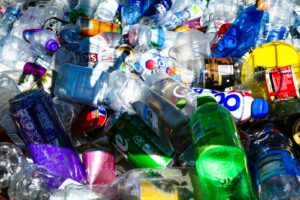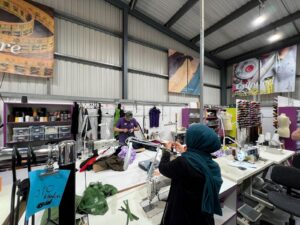80 years in the recycling business
Many people think recycling is a relatively modern phenomenon, but one Hertfordshire-based firm has recently celebrated 80 years in the business.
CS Recycling was originally founded in 1937 as Chas Storer Ltd and collects paper, cardboard and polythene plastics from commercial businesses across the south east for recycling. The family-owned business also sponsored Potters Bar District Under 11s earlier this year and is developing a programme for primary schools to help children understand the benefits of recycling.
Environment Journal spoke to the firm’s managing director, Craig Curtis about the company’s origins and the future of recycling.
How did your family originally get into the waste paper business?
My great-grandfather, William Curtis had a second-hand store. He used to go around the streets of the rich areas of London and collect things the rich people didn’t want. That included newspapers and old magazines and he would then sell them to the less-wealthy people, when they were a month or two old.
But then paper mills decided to use old paper to go along with the pulp. They rapidly realised they could buy it from the guys who collected old newspapers. We’ve got a photograph of the old shop, and it has a sign, which says ‘100,000 tonnes of waste paper wanted’. At the back of the shop, they had a yard and they would load carts there up to go the local mill. It progressed on from there.
Paper and cardboard was brought in and they developed a baler to squash it into bales They used to load them onto trailers and deliver them to the growing number of mills in the UK, who used small amounts of waste paper. Then the industry grew even further. During the war, they had the contract for taking down all the railings in London, which were made into bombs, because they had a scrap metal yard.
As the years moved on, we moved out from Islington to Edmonton and then in 1966, when my father and my uncle took over the business, they bought the premises where we are now.

Were there many waste paper firms back in the 1920s and 1930s?
[Jimmy] Maybank was probably the largest waste paper merchant [back then]. He ended up with depots in many cities, like Birmingham and Manchester. It was sold to Reed, which became SCA. Independent merchants were all over London. The east end of London was full of printer companies, because of all the newspaper printing. There were quite a number of waste paper merchants in the area.
How has the company changed with technology and the recycling industry?
Everything is higher volume now. Back in the 1970s and 80s, it was difficult to get companies to recycle, because the cost of taking rubbish was very cheap. But when the landfill tax started, it started to cost more. A large amount of material in the 1970s and 80s came from local charities and the Scouts. They would all collect newspaper and magazines from their streets and sell it on to us. It was a good fundraising thing for them. But in the late 1980s, councils started collecting from the kerbside, so the Scouts were not able to collect anymore. But as far as we’re concerned, we do more tonnes per day as each year go by.
What happens to the materials you collect?
Everything we collect is baled and sent to paper mills, but the mills we supply these days are mostly in Asia. We do supply UK mills, but since the end of the 1990s the majority of the mills we supply are in the Far East. Throughout the 1980s we supplied paper to a large mill in Enfield, but that mill closed down and production was moved to China. That has happened to a lot of mills. The reason so much material has to go off to the Far East is because the Far East make all the goods we buy. You have to put goods in cardboard boxes, so it has to go back to the Far East for the process to start again.
I understand the company is also looking to develop a programme to help primary school children learn about recycling?
We’re looking at that. We all think it would be a good idea to go out to local schools and show them the benefits of recycling. Hopefully it will give them a good grounding in recycling.
How do you think the recycling industry will change in the next 80 years?
I think quality is the biggest issue at the moment and making sure the bales we produce are of a high-enough quality that the mills are happy to use them. We make sure we keep our eye on everything to make sure our quality is tip-top. As you may have heard, China announced to the World Trade Organisation they have felt there are too many mixed-up products in the paper or in the plastics they receive. China have said they a limit of 0.3% of contamination on any imported waste materials. That would be very difficult to achieve and was a complete shock to everyone in the industry. We now believe the Chinese government is going to limit it to 1%, which is completely doable. So, watch this space.















